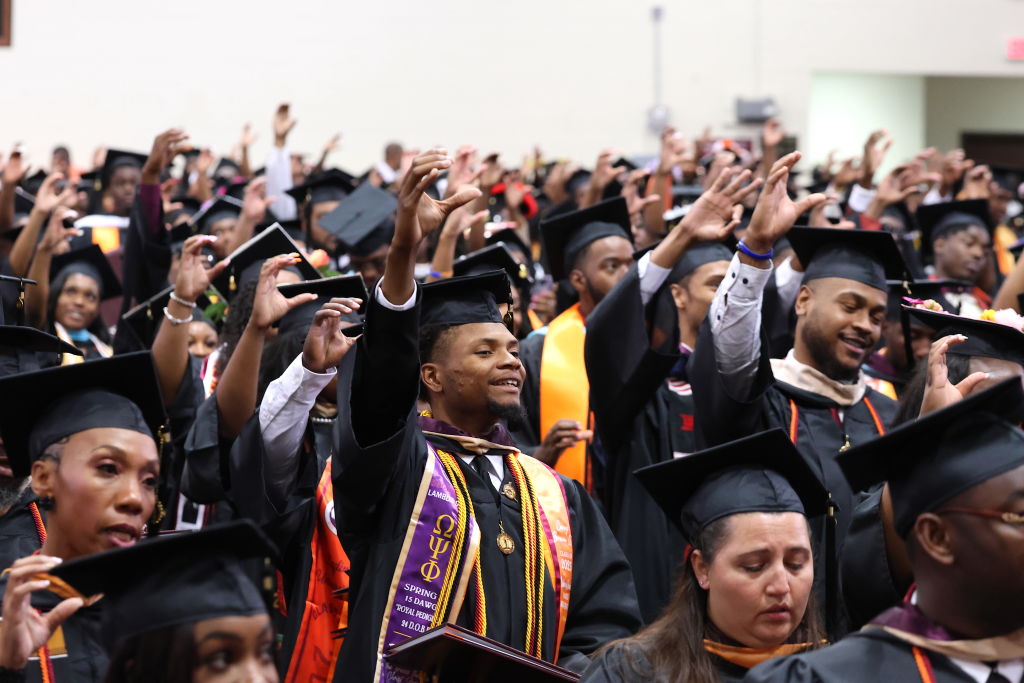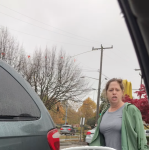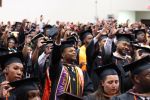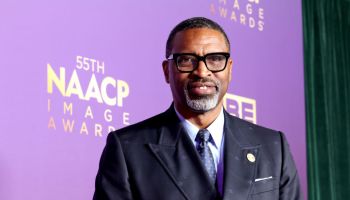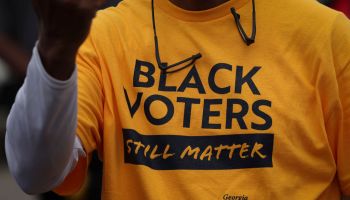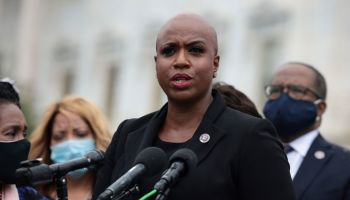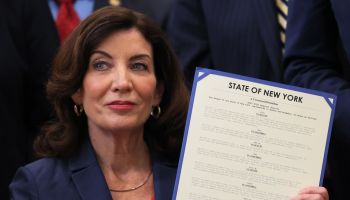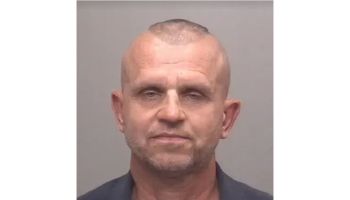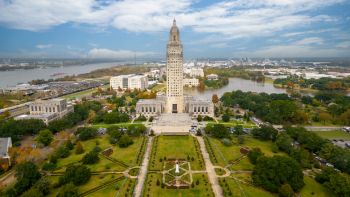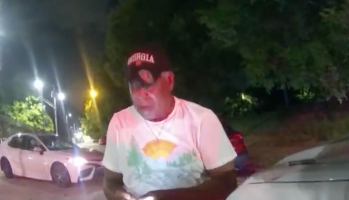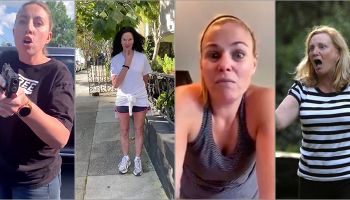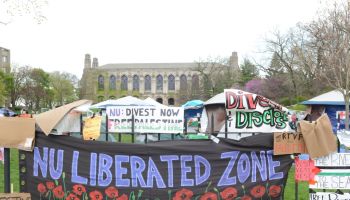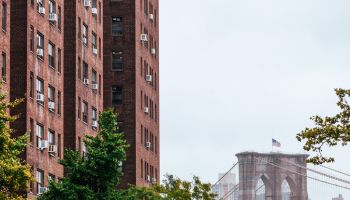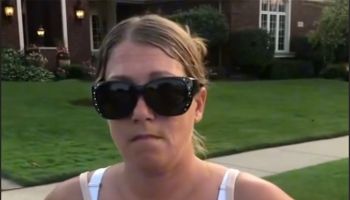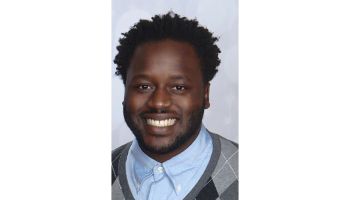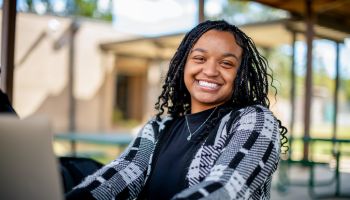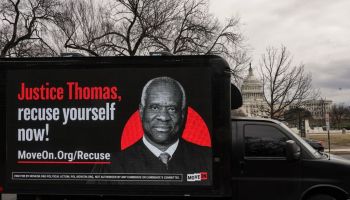Last week, we began our exploration behind the Blue Line of police brutality, specifically as it pertains to Black America. While the research compiled was horrifying, sadly it wasn’t surprising to a community that comes face to face with police abusing their authority on a daily basis.
RELATED: Killers Behind The Badge: NewsOne’s Investigative Series On Police Brutality
Yahoo News reports:
Police stops in New York City have climbed steadily to more than 685,000 last year from nearly 161,000 in 2003. Only 12 percent of those stopped were arrested or ticketed. More than 85 percent were Black or Hispanic, while they make up 51 percent of the city’s population.
A Reuters analysis of more than 3 million stops from 2006 through 2011 shows that by far the densest concentrations fell in areas of public housing, home to many of the city’s poorest families and where 90 percent of residents are Black or Hispanic. Although one would expect a heavy concentration of police stops in these densely populated areas, the stop rate is disproportionate: In 2011, police stopped people in these areas at a rate more than three times higher than elsewhere in the city, the analysis found.
New York is but a microcosm of the legal profiling of Black boys and men that takes place all over America. According to the study, “Race and Perceptions of Police Misconduct,” the perspectives of White Americans and Black Americans on law enforcement are vastly different, because 1.) White Americans are not subjected to the level of prejudiced scrutiny and corruption that has come to define many police departments, and 2.) Police officers have apparently bought in to the dominant stereotype that “controlling crime is roughly equivalent to intensifying law enforcement against minority individuals or … communities.”
Want to Keep Up With NewsOne.com? LIKE Us On Facebook!
With our voices not being heard — or acknowledged — on a national stage, many in the Black community have shifted from “what can they do for us?” to “what can we do for ourselves?” With this in mind, we interviewed Attorney Eric Welch Guster of Guster Law Firm in Birmingham, Ala. His firm of four lawyers handles class action lawsuits, civil and criminal trial litigation, and more importantly, has a visible presence in the Black community along with an urgent concern for the safety of young Black men in America.
Among a number of questions we asked Attorney Guster, the paramount question was what can we do to control the state-sanctioned violence running rampant in the Black community?
**********************************************************************
NewsOne: Legally, to what extent are police officers within their rights when they use physical force on people that they stop?
Attorney Eric Welch Guster: They can only use physical force when the person does not comply with their commands. They can only use enough force to apprehend the person. They are not within their rights to violently beat someone just because they want to punish the person for what they may have done.
NewsOne: “Stop and Frisk” and searches and seizures disproportionately affect the Black community, are there legal implications for police officers if a solid case were presented that proved racial profiling?
Attorney Guster: There are civil implications [lawsuits] for profiling. This is one of the major issues with immigration reform, and I spoke about this on local Fox affiliate Fox6 News last Sunday. We discussed how with the immigration laws allowing officers to ask people about their immigration status, [this] increases the possibility of illegal stops, meaning profiling.
Police will conjure up reasons to stop someone. We have all heard of the broken tail light. There is always a headlight out, no seat belt, speeding, etc., which can give them a reason to pull you over. However, you can always tell them to not search your vehicle. They must have probable cause to do that.
NewsOne: Please share with our readers the importance of educating our youth on the reality of police brutality.
Attorney Guster: I speak to youth about police interaction. I tell them to place their hands on the steering wheel so the officer cannot claim they were reaching for a weapon or trying to hide something. There are some rogue cops out there, but we must also remember that there are some good ones who try to do their jobs.
They are in a position of approaching someone, and they don’t know the mind-set: if that person wants to cooperate or hurt or kill them. Also, I tell them to be courteous to the officer, even if they think the officer is wrong. The place to battle a bad stop is not on the side of the road, but in the courtroom when you have a lawyer with an even playing field to do battle.
On the side of the road, in the alley, or on the corner, it is not even. The person with the gun has the upper hand and can do some bad things to you.
NewsOne: Is there any kind of apparatus that drivers/pedestrians can install/carry that would cause police officers to hesitate before brutalizing them?
Attorney Guster: I have not heard of a specific apparatus, but the best weapon is a smartphone. They can be used to record incidents and interactions with police. I suggest that people put their phone on record when they are pulled over by police. The phone will record the interaction and allows them to have a record of what happened. Although video is better, oftentimes audio is good enough to prove what was stated and what probably happened in reference to the physical altercations.
NewsOne: Legal profession aside, as a Black man in America, what are your thoughts on police brutality?
Attorney Guster: Many of these officers are thugs with badges and use the badge as a permission slip to whip someone’s tail: We have seen the countless officers indicted for everything from drug trafficking to prostitution to arson. This shows that some of the problems obviously stem from the officers selected, but also from the limited options police departments have to choose their personnel from.
As a community, we must hold the police accountable and hold ourselves accountable. When someone from our community is wrong, we must stand up and say it. When the police are wrong, we must stand up and say it.
Police brutality is an epidemic.
***********************************************************
Watch Police Brutality on video here:
In speaking with Attorney Guster it becomes clear that our rights are being violated in the most-egregious ways and in plain sight. The issues of violence within our communities and violence perpetuated against our communities must be handled intelligently, in tandem, and with a clear understanding that though some police officers are “Killers behind the Badge,” they are first people bound by the same laws that we are. It’s up to us to take action against them in courtrooms across America.
Is the judicial system unfair as well? Absolutely. Though we are clearly the constitutional victims, we must make it clear that we know our rights and will no longer be lynched in the United States of America.
Next, NewsOne will go behind the Blue Line with a police officer willing to shed light on the culture of police brutality.
